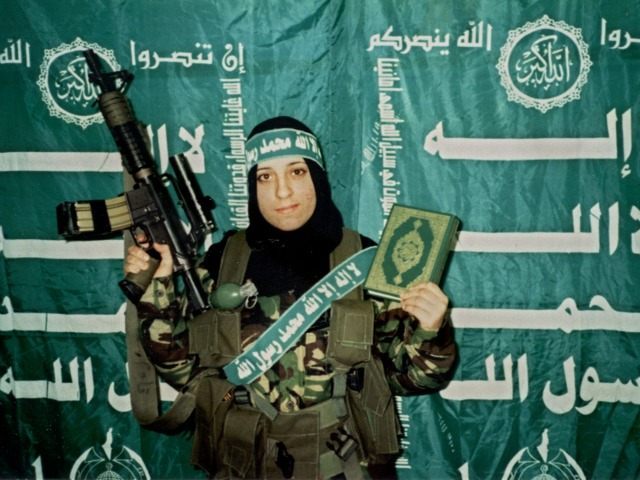An article at the Long War Journal notes that the recent headline news reports of female suicide bombers striking on behalf of Boko Haram, an affiliate of the Islamic State, are no coincidence. The use of women and girls as suicide bombers in the region is increasing.
The report includes a number of attacks by female bombers linked to Boko Haram, which now refers to itself as the Islamic State of West Africa (ISWA):
In its most recent assault, ISWA attempted to target a internally displaced persons (IDP) camp with three females near the northeast Nigeria town of Maiduguri, killing at least 69 people on Jan. 31. On Dec. 28, a mosque in the city was also targeted by a female bomber, which left at least 20 people dead.
That bombing came a day after ISWA began a massive assault on the city, including two females used as part of the coordinated assault in various neighborhoods. As this was occurring two other female suicide bombers blew themselves up in a crowded market in the town of Madagali. According to the BBC, at least 30 people have been killed in those explosions.
Just a few days before the Jan. 31 attack, the jihadist group killed 9 when five women detonated themselves in the town of Chibok. Chibok came into international attention in 2014 when ISWA kidnapped over 300 schoolgirls from the town, of which, many are still missing.
Two days before the attack in Chibok, four ISWA female suicide bombers killed at least 35 people in a market in Cameroon’s Far North Region. The assault led the Cameroonian government to close down the region’s markets in an effort to cut down on allowing ISWA to target civilians. However, it is unclear how effective this measure will be as ISWA is known to also target mosques, churches, bus stops, and various other places that civilians gather.
The Long War Journal’s tally adds up to at least 101 women and girls operating as suicide bombers in Nigeria, Cameroon, and Chad since 2014, with the majority of the attacks occurring in Nigeria.
The effectiveness of female suicide bombers comes from their superior ability to hide explosives on their persons, and the cultural reluctance of male security personnel to search them thoroughly.
“The ages of the bombers have ranged from just nine-years-old to middle-aged,” writes the Journal. “Many of the women and girls used in these bombings are likely forced into committing the attacks, however, some could be the widows or daughters of killed fighters.”
The Council on Foreign Relations described the more extensive use of female bombers as part of Boko Haram’s “resurgence in northeast Nigeria,” after the Nigerian government’s confident declaration that the terrorist group had been decisively defeated.
Another indicator of Boko Haram regaining strength was its ability to occupy the village of Dalori for a time, after a raid at the end of January, possibly repelling at least one attempt to dislodge them by a slow-responding Nigerian military. Female suicide bombers were reportedly part of the Dalori attack.

COMMENTS
Please let us know if you're having issues with commenting.